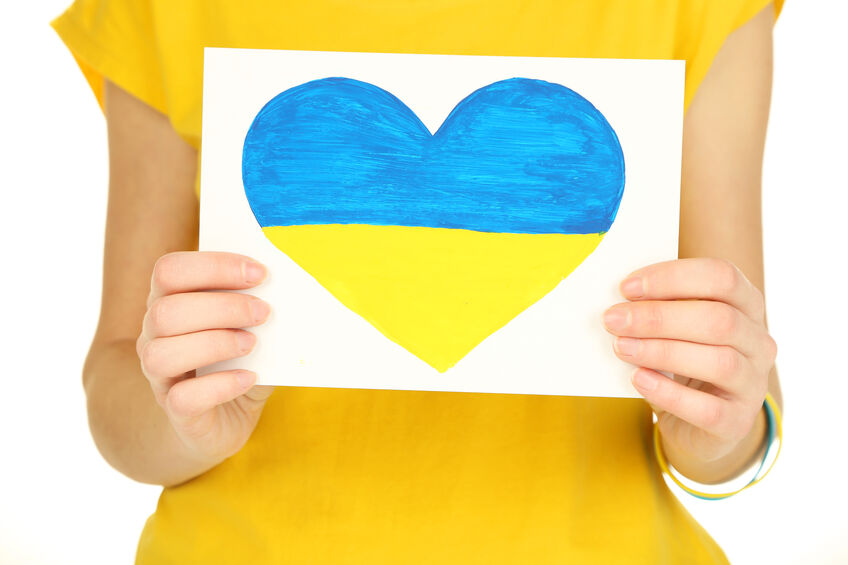
Q: Dear Donna,
My preschool and elementary school-aged children are becoming increasingly aware of world news, from the media as well as discussions in school. My husband and I are struggling to answer their questions honestly, but we don’t want them to become anxious and afraid that it could affect their safety here. How much is enough to say, and how much is too much?
— Mom muting the TV
As a world, we have been living through frightening days for years. But last week with the news from Ukraine, the world grew very dark. As adults, we are struggling ourselves to make sense of this time and to stave off our own worries and anxieties. So how do we help our kids get their heads around the fears, anxiety, uncertainty and unpredictability, once again?
Our first instinct is to shield our kids from anything and everything scary. Kids, however, pick up everything that surrounds them — and not just from older siblings, friends, newsfeeds, and social media. They are tuning into our worries and stress as well. Together, we can work through not only our children’s confusion and worries, but also our own.
Related: The Ultimate Guide for Talking to Kids About Tough Topics
Be sure you are putting your own stress in order by becoming aware of and dealing with your own anxiety, worries and fears. This way, you can approach your child in a calm and focused manner, and be better available to help kids deal with their concerns.
Be open and inviting. Be honest about how you feel about the news. It is ok to be confused and wonder why things happen. Be mindful and informed about the information you are sharing, sifting misinformation and hearsay from accurate facts. Identifying where the information is coming from, and helping your child to do the same, will help you answer questions responsibly and empathically.
Provide simple answers like sometimes we don’t like what happens in the world. Don’t overload them, or yourself, with info. Remember less is more, and don’t become overly detailed and descriptive with details.
By talking about what kids know, and want to know, you can have a starting point for where to take the conversation, and what they are ready to take in. It is okay not to have answers. But keep the conversational door open, addressing things as they arise and checking in with your kids as events evolve. Give kids facts and context without judgment.
Reassurance is key. Help children to know that there is good in the world; Mister Rogers always said, “When something scary is happening, look for the helpers. You will always find people who are helping.” Showing children all the people working to help and reading about organizations and heroes provides reassurance.
Limit news exposure, but don’t avoid what is happening. Point to maps to help kids see where the conflict is happening, and help them learn about Ukraine’s culture and history. Point to the heroes.
Help kids to find ways they can help. There is agency and empowerment in coming up with and participating in solutions. Providing children with opportunities to feel that they can be helpful also allows them to develop kindness and empathy. Ask children to think about how they might be helpful — let creativity take hold here, from artwork and letter writing to fundraising on the front lawn, raising donations to help children just like them in Ukraine.
Some organizations doing important work in the region include UNHCR, International Rescue Committee, Voices of Children, Care, World Central Kitchen.
Times like these can be an opportunity to discuss conflicts and how children can learn to problem-solve when conflict arises in their world. Learning to understand the perspective, emotions, and experiences of others builds empathy.
You are the beacon: model how best to handle these stressful days, where you can make a difference and how you can maintain a positive attitude. Take walks together, watch a silly movie read a book together, make comfort foods… and be sure to take care of you!
These Posts on Parenting
Housman Institute, LLC
831 Beacon Street, Suite 407
Newton, MA 02459
info@housmaninstitute.org
(508)379-3012
Explore
Our Products
Legal
Connect
Contact
Join our Mailing List!
Subscribe to receive our newsletter, latest blogs, and ECSEL resources.
We respect and value your privacy.
Comments (1)